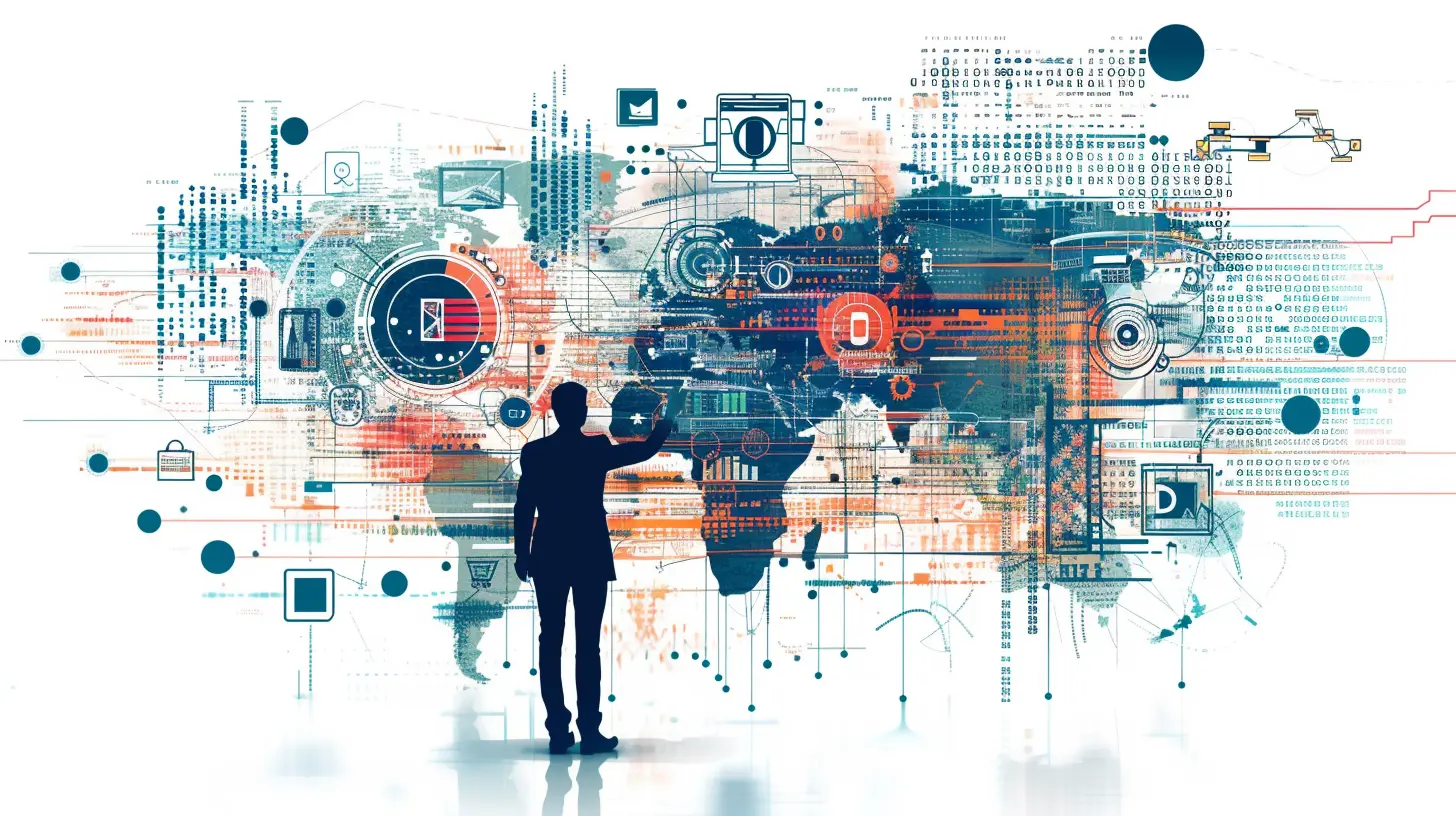The Ethics of Data Collection: Where Do We Draw the Line?
7 November 2025
In a world where almost every action we take online leaves a breadcrumb, data has officially become the new oil. It's the fuel that powers our favorite apps, personalized ads, smart assistants, and even the ever-controversial social media algorithms. But here's the twist—just because we can collect all this data, should we?
Let’s have a heart-to-heart about how data collection impacts our lives, where it crosses the line, and what we can (and should) do about it.
The Double-Edged Sword of Data
Data collection isn't inherently evil. In fact, it can make life a whole lot easier. Ever noticed how Spotify builds you the perfect playlist, or how Google Maps magically knows the fastest route home during rush hour? That’s data doing its thing—and it’s awesome.But there's a flip side. Imagine someone watching every click, every scroll, and every online purchase you make. Creepy, right? The issue isn’t the data itself, but how it’s collected, stored, and used.
Why Companies Collect Data Anyway
Let’s start with the basics. Why all this obsession over data?- Personalization: Companies want to tailor experiences just for you. Think Netflix recommendations or Amazon suggesting products you never knew you needed.
- Advertising: Advertisers love targeting. The more they know about you, the higher the chance you'll click "Buy Now."
- Product Improvement: Feedback, usage patterns, and bug reports help developers make better apps and tools.
- Analytics: Data shows what’s working and what’s not. It’s like a digital report card.
So yes, data serves a purpose. But at what cost?
When It Crosses the Line
We’ve all felt that moment of discomfort—like when you talk about sneakers with a friend, and suddenly your feed is full of shoe ads. Coincidence? Probably not.So, where do we draw the line between helpful and harmful?
1. Consent, or the Lack of It
Many of us click “I agree” without batting an eye. But what exactly are we agreeing to? Long, confusing privacy policies feel designed to confuse, not inform. When users don’t understand what they’re consenting to, is it really consent?2. Surveillance Overload
With smart devices, cameras, and apps listening in 24/7, it starts to feel like we’re always being watched. And honestly, that’s not far off.Consider your smartphone—it's technically capable of tracking your movements, recording audio, and collecting personal habits. Without strong boundaries, this can easily become corporate surveillance.
3. Selling Data to Third Parties
This is where things get murky. Many companies aren’t just collecting your data—they’re selling it. That means your shopping habits, location history, and even health information could end up in the hands of marketers or worse, data brokers you've never even heard of.
Real-World Data Disasters
To put things into perspective, let’s look at a few high-profile oopsie moments in data ethics.The Facebook–Cambridge Analytica Scandal
Remember this one? Facebook user data was harvested without consent and used to influence voter behavior. Talk about a breach of trust.Equifax Data Breach
About 147 million people had their personal information stolen, including Social Security numbers. And guess what? The people affected didn’t even opt in—they were just caught in the crossfire.These aren’t just tech glitches. They’re ethical failures.
The Grey Areas We Often Ignore
Ethics isn’t black and white. There's a whole lot of gray in between. Here are some situations where drawing the line isn’t as easy as we’d like.Data from Public Sources
If you post something publicly, is it fair game? Some companies think so. They scrape data from forums, social media, and public records. But just because it’s public, does that mean it should be used for profiling or targeted ads?Data from Children
Kids are increasingly online, yet they’re the most vulnerable. Should we treat their data differently? (Spoiler: Yes, we absolutely should.)Health and Biometric Data
From fitness trackers to genetic testing, health data is a goldmine. But when something as personal as your DNA can be shared or sold, we really need to ask—how did we let that become acceptable?Drawing a New Line in the Digital Sand
So, what can we do? It's not about shutting down data collection entirely—it's about doing it responsibly.1. Meaningful Consent
Let’s make privacy policies digestible. Use plain language. Give people real choices. Don’t just bury key details in a 4,000-word legal document.2. Transparency
Tell users what’s being collected, why it’s needed, and how it will be used. And hey, if plans change, let people know.3. Data Minimization
Only collect what you need. Simple, right? If your app doesn’t need to access location or contacts for its core function, then don’t ask for it.4. Stronger Regulations
It's high time governments stepped up. Regulations like the GDPR in Europe and CCPA in California are great starts, but we need global standards.5. Empowering Users
Give people the tools to control their data. Easy opt-outs, access to data logs, and the ability to delete accounts shouldn’t be luxuries.The Role of Tech Companies
Let’s face it, the real power lies with tech giants. And with great power comes—you guessed it—great responsibility.Companies need to embed ethical thinking into their product design, not just bolt it on as an afterthought. Even better? Appoint Chief Ethics Officers or Ethics Committees to oversee these decisions.
Because at the end of the day, building trust isn’t just good ethics—it’s good business.
Our Role as Everyday Users
We’re not off the hook either. As users, we’ve got to be more conscious. That means questioning the permissions we grant, reading up on privacy settings, and holding companies accountable.Think of it like locking your front door. You wouldn’t leave it wide open, so why do that with your digital life?
Can Tech Be Ethical by Design?
Absolutely. Ethics shouldn’t be a footnote—it should be part of the blueprint.Imagine if developers approached every project by asking: “Is this something I’d want my own data used for?” or “Would I be okay if this data ended up in the wrong hands?”
That shift in mindset could change the entire industry.
Final Thoughts
We live in a world soaked in data. And while that comes with incredible convenience and innovation, it also places us at ethical crossroads.Drawing the line isn’t about being anti-tech—it’s about being pro-human. It’s about keeping people, not profits, at the heart of decision-making.
So, the next time you download an app or sign up for another online service, take a moment. Ask yourself: “Is the benefit worth the cost?” Because data isn’t just ones and zeroes—it’s us.
all images in this post were generated using AI tools
Category:
Data PrivacyAuthor:

Marcus Gray
Discussion
rate this article
1 comments
Sylvan Good
This article compellingly highlights the complex ethical landscape of data collection. Striking a balance between innovation and privacy is crucial; transparent practices and informed consent should be the guiding principles.
November 8, 2025 at 12:32 PM


